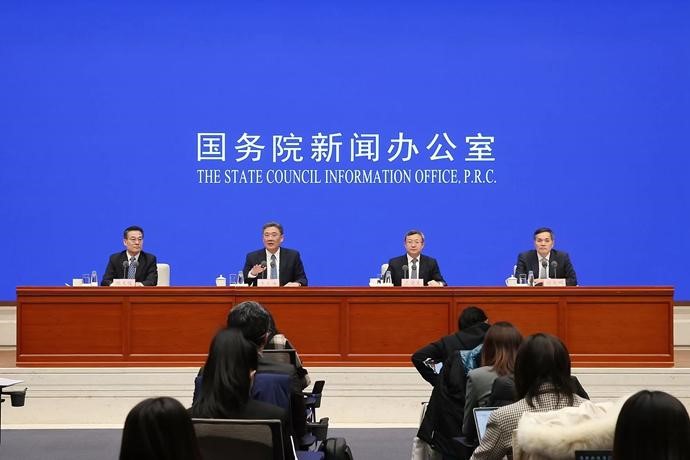In the early 1980’s, when China first opened to the West, American businessmen received verbal warnings from those who previously had traveled to China to trade with the communist state. Typically one might be told, “You need to be aware that the Chinese government has nèibù [内部] and wàibù [外部] laws that foreigners must follow.” The problem centered on that it was illegal for a Chinese citizen to discuss the details of nèibù or “internal only laws” with foreigners, although all non-Chinese must obey both internal and external rules. This past week President Xi Jinping promulgated a new law that Beijing says legitimizes even tougher measures on foreigners, to deal with qīlíng [欺凌] or “bullying” by the West. The statute, according to Willy Wo-Lap Law of the Jamestown Foundation, took effect on July 1. He says: “’The Law on Foreign Relations of the People’s Republic of China (PRC)’… will… anchor the supreme leader’s long-standing aspiration to build a China-centric global order that will challenge the framework established by the US-led Western Alliance since the end of World War II.”
By codifying Xi’s total control over all policies regarding diplomacy and national security, the Chinese publication People’s Daily says that “the law stays true to the vision of common, comprehensive, cooperative, and sustainable global security, and endeavors to strengthen international security cooperation and its participation in mechanisms of global security governance.” In pragmatic terms the new law blatantly justifies Beijing to take “corresponding countermeasures and restrictive measures” when it believes others are violating international laws or that “endanger China’s sovereignty, security, and development interests.”
The Global Times reports the statute is in response to “new challenges in foreign relations, especially when China has been facing frequent external interference in its internal affairs under the western hegemony with unilateral sanctions and long-arm jurisdiction.” It appears the law allows the retaliatory blacklisting of foreign nationals and institutions if other nation-states act against Chinese firms for spying, theft of intellectual property, or other unsanctioned economic activities. Lam says that the promulgation of a counter-espionage law earlier this year “already places businesspeople from different countries in a potentially compromising situation.” The environment is more inhospitable today.
China’s definition of “spying” or the “leaking of state secrets” is very different from definitions used in the West. This year public security officers have cracked down on a number of multinational due diligence companies, accounting firms and others handling sensitive financial dates, notes Lam. He adds that “the CCP administration has also restricted the activities of American IT firm Micron in an apparent tit-for-tat response to Washington’s efforts to punish Chinese IT firms with links to national security and military units.”
China does not abide by global norms and practices in the areas of freedom of information, disclosure of holdings of stakeholders, or rules for open bidding on contracts. Nor has President Xi condemned Putin’s “special military action” in Ukraine, despite China’s claim that it respects the territorial integrity of all nations. The People’s Liberation Army (PLA) in recent times has moved aggressively in the Taiwan Strait, Sea of Japan, and the South China Sea belying its commitment to the rules-based international system. It also continues to challenge the order in the region in defiance of the United Nations’ Court of Final Appeal in the Hague condemning China for violations of international law. At every turn China is defying the international rules-based order. It also remains silent on the Wagner mercenary group move against the Kremlin, although the Russian Deputy Foreign Minister did make an unplanned trip to Beijing last week to meet with Chinese officials.
Analysts in Washington note that the Wagner Group has weakened Putin’s position and as a key ally of Xi’s, also hurt China’s attempt to establish an “axis of autocratic states” in Central Asia under the Shanghai Cooperation Organization and the BRICS mechanism. Chinese officials defiantly argue that they will not allow the country to be contained by Washington or the West, and that it will continue pushing its open-door policy as formulated under Deng Xiaoping in 1978. Lam points out that promises made earlier by Beijing “regarding the liberalization of control of foreign-exchange movements and other measures deemed to restrict the business opportunities of multinationals have yet to be honored.”
In the end the new law effectively provides Xi additional cover for his support of Vladimir Putin. Western analysts point out that Xi may prefer to keep Putin in power so the West remains focused on Europe and not on Asia. More significantly, some suggest Xi is concerned that a successor may not be as agreeable to play the secondary role in the bilateral relationship under his “Great renaissance of the Chinese nation” that is intended to remake the world order following a Chinese model.
Daria Novak served in the U.S. State Dept.
Photo: Minister Wang Wentao Attended State Council Information Office Press Conference to Brief Reporter on Commerce issues (China Trade Ministry)
